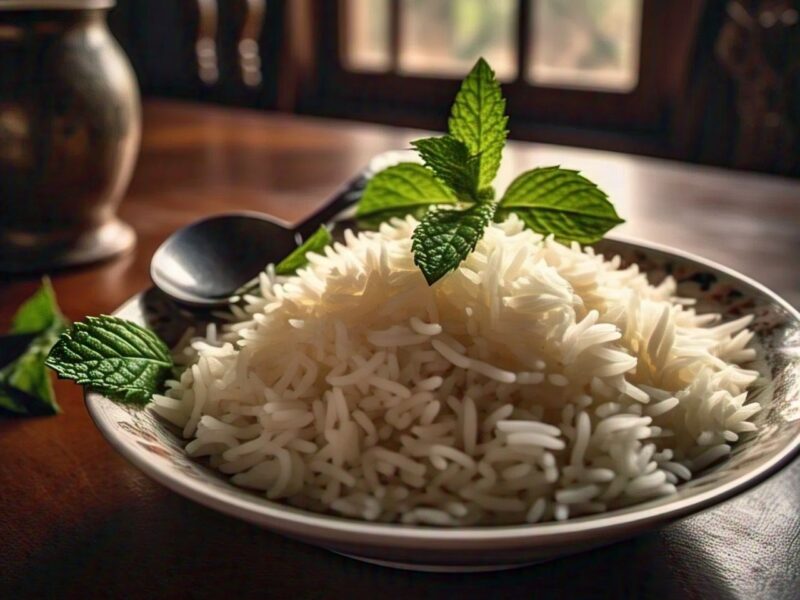In Nigeria, Basmati rice stands out as a premium imported grain, revered for its long, slender grains, captivating aroma, and subtle flavor that elevate dishes like jollof and biryani to new heights. As of March 31, 2025, its cost reflects a fusion of global trade intricacies and local market trends, marking it as a luxury option compared to domestically produced varieties. We offer a detailed exploration of Basmati rice prices in Nigeria, encompassing current ranges, key factors driving costs, leading brands, and the best purchasing channels to ensure you’re fully equipped to make savvy buying choices.
Table of Contents
ToggleCurrent Price Ranges of Basmati Rice in Nigeria
The price of Basmati rice in Nigeria varies depending on package size, brand, and purchase location. As of March 2025, we outline the following price points:
- 1kg: ₦2,500 – ₦3,500
- 5kg: ₦12,000 – ₦18,000
- 10kg: ₦23,000 – ₦35,000
- 25kg: ₦55,000 – ₦70,000
- 50kg: ₦95,000 – ₦120,000
These figures stem from major markets and online platforms, with urban hubs like Lagos and Abuja typically commanding the higher end due to increased demand and logistics costs.
Popular Basmati Rice Brands and Their Costs
Several Basmati rice brands dominate the Nigerian market, each distinguished by quality, origin, and pricing. We highlight the most prominent options below.
Tilda Basmati Rice
- 5kg: ₦15,000 – ₦18,000
- 10kg: ₦28,000 – ₦33,000
- 50kg: ₦100,000 – ₦115,000
- Details: Originating from India, Tilda is celebrated for its pure, aged grains and floral scent, making it a top pick for upscale dining.
India Gate Basmati Rice
- 5kg: ₦14,500 – ₦17,000
- 10kg: ₦27,000 – ₦32,000
- 50kg: ₦98,000 – ₦110,000
- Details: Known for its extra-long grains and reliable quality, this Indian brand is favored by professional chefs and home cooks alike.
Lal Qilla Basmati Rice
- 5kg: ₦13,500 – ₦16,500
- 10kg: ₦25,000 – ₦30,000
- 50kg: ₦95,000 – ₦108,000
- Details: Offers a nutty flavor and health-focused variants, including diabetic-friendly options, appealing to wellness enthusiasts.
Royal Basmati Rice
- 5kg: ₦14,000 – ₦16,000
- 10kg: ₦26,000 – ₦31,000
- 50kg: ₦97,000 – ₦112,000
- Details: Strikes a balance between affordability and luxury, widely available in supermarkets across the country.
Factors Driving Basmati Rice Prices
Numerous elements influence the cost of Basmati rice in Nigeria. We break them down as follows:
- Exchange Rate Volatility: With the naira at ₦1,600 – ₦1,700 per USD in 2025, imported goods like Basmati experience price surges as the currency weakens.
- Import Duties: Customs tariffs, often exceeding 30%, add ₦10,000 – ₦20,000 to a 50kg bag, varying by shipment volume.
- Global Supply Dynamics: India’s export restrictions, such as those in 2023, can reduce availability, boosting prices by 10-15%.
- Local Distribution Costs: Transporting rice from ports like Apapa to inland regions tacks on ₦5,000 – ₦15,000 per bag, with northern states facing the steepest increases.
Where to Buy Basmati Rice in Nigeria
We identify the top purchasing options, each with distinct benefits:
- Major Markets:
- Locations: Mile 12 (Lagos), Dawanau (Kano)
- 5kg: ₦13,000 – ₦16,000
- 50kg: ₦95,000 – ₦110,000
- Benefit: Competitive pricing and bulk availability.
- Online Retailers:
- Sites: Jumia (https://www.jumia.com.ng), Konga (https://www.konga.com)
- 5kg: ₦14,000 – ₦18,000
- 50kg: ₦100,000 – ₦120,000
- Benefit: Convenient delivery and occasional discounts.
- Supermarkets:
- Chains: Shoprite, Spar
- 5kg: ₦15,000 – ₦18,000
- 50kg: ₦105,000 – ₦120,000
- Benefit: Quality assurance and premium brand access.
Basmati Rice vs. Local Alternatives
When stacked against local varieties like Ofada or Big Bull, Basmati rice emerges as a costlier choice. A 50kg bag of Basmati ranges from ₦95,000 to ₦120,000, while local rice typically falls between ₦60,000 and ₦80,000 for the same size. This 40-50% premium is driven by Basmati’s unmatched aroma, non-sticky texture, and imported status, setting it apart from the more budget-friendly but less refined local options.
Read also: How Much is a Bag of Rice in Nigeria?
Seasonal Price Trends
Prices for Basmati rice shift with seasonal demand patterns. During peak festive times like Ramadan or Christmas, a 50kg bag can climb to ₦115,000 – ₦130,000 as families stock up for celebrations. Conversely, off-peak periods—such as post-harvest months or times of naira stability—may see prices dip to ₦90,000 – ₦100,000, offering opportunities for cost-conscious buyers.
Why Basmati Rice Commands a Premium
The elevated price of Basmati rice stems from its unique characteristics. Grown solely in the Himalayan foothills of India and Pakistan, it undergoes a meticulous 1-2 year aging process that enhances its flavor and texture. Import costs, including shipping and duties, significantly inflate its price, while its quality—featuring long, separate grains and a rich, nutty taste—justifies the expense for those seeking a luxurious culinary experience.
Tips for Cost-Effective Purchases
We provide actionable strategies to secure Basmati rice at better rates:
- Buy in Bulk: Markets offer a 50kg bag for as low as ₦95,000, compared to ₦105,000 in supermarkets.
- Monitor Online Sales: Platforms like Jumia often feature deals, reducing a 5kg bag to ₦12,500.
- Shop Rural Markets: Prices in less urban areas can be ₦5,000 – ₦10,000 lower per 50kg bag, maximizing savings.
The Bigger Picture: Basmati in Nigeria’s Market
Despite Nigeria’s substantial local rice output—estimated at 5.4 million tons annually—the allure of imported Basmati rice persists, fueled by its distinctive qualities. With 25% inflation in 2025, prices have risen from ₦75,000 – ₦95,000 for a 50kg bag in early 2024, reflecting economic challenges and a continued dependence on foreign supply. This preference underscores a cultural appreciation for premium imports, even as local production efforts intensify.
Conclusion: Navigating Basmati Rice Prices
So, how much is Basmati rice in Nigeria? As of March 2025, expect to pay ₦2,500 – ₦3,500 per kg and up to ₦95,000 – ₦120,000 for a 50kg bag, depending on brand, size, and source. Its luxury status is well-earned, blending exceptional quality with the realities of importation. By shopping strategically—whether in vibrant markets or through online promotions—you can savor Basmati rice as a flavorful investment in Nigeria’s dynamic culinary and economic landscape.

